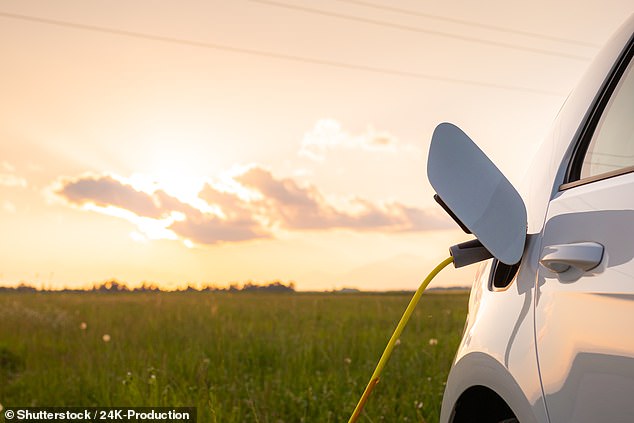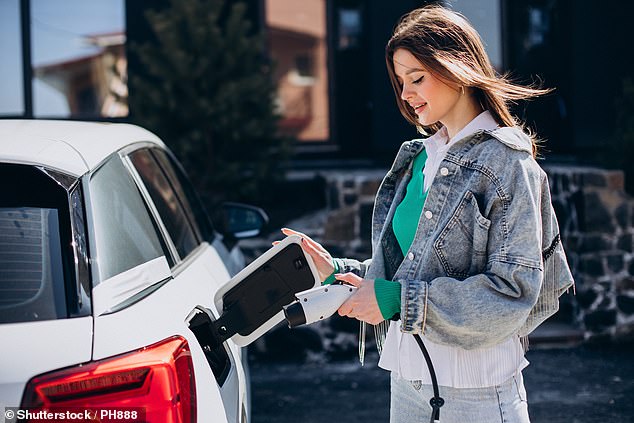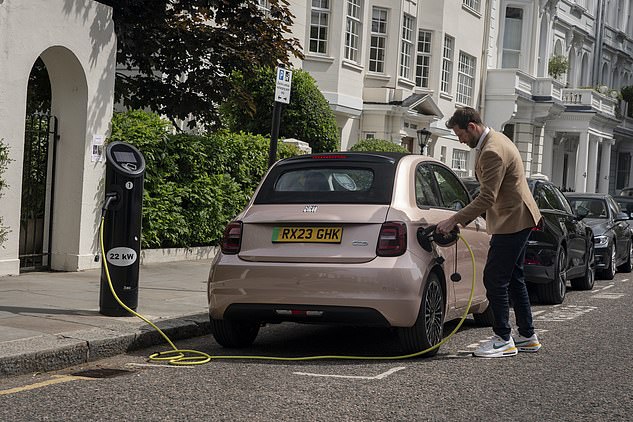The Government needs to seriously accelerate its transition to electric vehicles (EVs) if Britain is going to meet net zero targets in time, a House of Lords inquiry has found.
The Environment and Climate Change Committee’s EV Strategy: rapid recharge report published today warns that a ‘combination of higher purchase costs, insufficient charging infrastructure and mixed messaging’ risks slowing the adoption of electric cars in Britain.
Without hitting EV targets, CO2 emissions from passenger vehicles will not fall at the rates needed to tackle climate change and to benefit from better air quality, it concluded.
The report comes a day after industry figures confirmed the millionth EV had been bought in Britain, though registration stats for January showed that consumer appetite for electric cars is continuing to decline.

The UK Government needs to act to fast to accelerate the transition to EVs in order to hit net zero targets, a House of Lords report finds
Ministers have been instructed to start addressing the disparity in upfront costs between EVs and petrol and diesel cars, and revamp grants aimed at incentivising the purchase of new EVs.
The promotion of used second hand electric sales that offer a more affordable way for young people to own an EV was also top of the agenda.
The inquiry ‘identified the main obstacles and barriers to a successful and equitable transition to the Government’s EV target for passenger vehicles’.
With a clear focus on the future, the committee heard from wide range of witnesses: young people via the Youth Engagement Programme through to major manufacturers, chargepoint operators, and local authorities and Government Ministers.
Baroness Parminter, Chair of the inquiry, concluded: ‘The evidence we received shows the Government must do more to get people to adopt EVs.
‘If it fails to heed our recommendations the UK won’t reap the significant benefits of better air quality and will lag in the slow lane for tackling climate change.’

The committee heard from members of the public including young people from the Youth Engagement Programme as well as chargepoint providers, manufacturers and ministers
Targeted recommendations from the findings follow a three-pronged approach: Instilling confidence in buyers; accelerating the rollout of the UK’s charging infrastructure; and supporting industry.
To improve the confidence of drivers the second hand EV market needs a boost.
Reducing the VAT rate on public charging from 20 per cent to 5 per cent (in line with domestic electricity) and reforming road tax are two key areas the committee highlights.
Improved education around the EV transition for buyers was also found to be essential.
The Government fared slightly better when it came to charging infrastructure and industry, with the ZEV mandate on manufacturers and recent investment in the UK manufacturing industry welcomed.
Current support for local authorities in the form of the Local Electric Vehicle Infrastructure fund (LEVI) is seen as a great initial step but the report recommended extending this for a further three years.
However, outdated regulation is holding charging infrastructure back.
New consulting needs to happen around mandatory workplace charging and the ‘right to charge’ for tenants in multi-occupancy buildings in order to improve public charging networks.
The industry also needs more support to make sure the UK’s manufacturing can keep up with targets and stay ahead of innovation.
There’s been recent private investment in Britain’s battery production by the Government is required to step in and further enhance manufacturing and battery innovation to keep the UK competitive.
Better investment in UK vehicle and battery recycling facilities will improve end of life cycles, too.

Reducing the VAT rate from 20% to 5% on public charging would bring it in line with domestic charging – a significant tax benefit for EV drivers
RAC head of policy Simon Williams welcomed the Lords’ ‘important and far-reaching report’ and urged the Government to ‘take the recommendations it makes seriously’.
He added: ‘We have long argued that mass uptake of EVs – which is the Government’s aim – depends on prices falling to make them the natural choice for more people, so we are particularly pleased to see the Committee supporting the introduction of targeted grants for new electric cars, aimed at the more affordable end of the market.
‘We believe the UK was too hasty in scrapping the plug-in car grant as it did lead to more lower-priced models being introduced.
‘Without further financial support, it will be a long time before the majority of drivers will be able to afford to make the switch to electric.’
Williams went on: ‘We very much look forward to the Government’s response to this report and its explanation of what else it is going to do to ensure as many drivers are able to benefit from running an electric car as possible.’
Ian Plummer, commercial director of Auto Trader, said the Lords Committee had ‘rightly grasped the urgency of putting the electric transition back on track’.
He said the Government’s delayed ban on new petrol and diesel sales last September triggered a backward step for in the switch to EV, with more than a third of consumers declaring they would never go electric.
‘EVs need to be accessible to all, so we welcome this report and urge the government to act,’ Mr Plummer said.
Sue Davies, Which? Head of Consumer Protection Policy, said: ‘We know that consumers want to play their part in helping tackle climate change, but they face a number of barriers holding them back from purchasing electric vehicles.
‘Our research previously found that the upfront cost of buying an electric vehicle is a major barrier preventing drivers from considering one – and many drivers have a lack of confidence in the public charging infrastructure.
‘It is positive that the government passed new rules that should see improvements in consumers’ experiences of the public charging network.
‘The government and chargepoint operators must continue working together to ensure the UK’s charging infrastructure is up to scratch. Charging must be easy and reliable to support more people to make the move to an electric car.’
Some links in this article may be affiliate links. If you click on them we may earn a small commission. That helps us fund This Is Money, and keep it free to use. We do not write articles to promote products. We do not allow any commercial relationship to affect our editorial independence.












